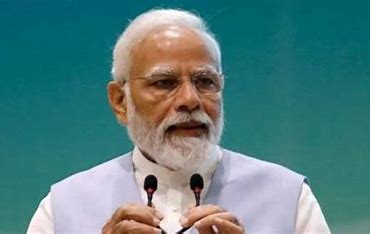
In the recent ranking of the country’s economic freedom, India’s ranking has slipped by 26 spots. The report measures economic freedom based on several quantitative and qualitative factors, grouped into four broad categories, or pillars, of economic freedom that includes rule of law, government size, regulatory efficiency and open market. The report suggests that there has been decline in government integrity, fiscal health and labour freedom.
While many see this as an indicator of the government’s under performance, it must be noted that Indian economy carries a huge baggage of the past that led the economy, business and freedom to do business, languish for nearly two decades. The current government has made continuous efforts in creating an environment for economic freedom. The recent decision to privatize airports and railways shows that the government is ready to let go state mired business. It is determined to take bold measures to redefine the classical socialist model of economic policies. The socialist policies that resulted in higher state control have been derided by many progressive economies.
Now, the same spirit has to be shown to improve India’s fiscal health which is in a dwindling state. There is an urgent need to correct inadequacies in banking regulation which allows banks to accumulate NPAs. Alongside, there should be more options for restructuring of banking companies. Makeshift provisions such as one-time restructuring with creditors, Inter Creditors Agreement are not the long-term solution. Mergers of banks are also not a solution to deal with escalating NPAs. In the long run, it will become inevitable to allow all the banks to go private and let banks that do not perform to fail. After all, ease of business includes ease of exit.
The ‘parens patriae’ approach of the government that forces them to take extreme bailout measures for protecting failing banks must be eschewed. Failing banks should not be allowed to socialize the loss through bail outs. In this regard, the ‘Bail In’ as proposed under the FRDI Bill that met severe criticism was well intended, albeit coming at the cost of depositors. There is a need to find a market centric solution for the banking industry that may circumvent the social cost of bank failures. Finding a single window solution is not possible and the answer has to come from a myriad of regulatory frameworks. The regulations should be premised on transparency and accountability. Corporate governance in banks needs to be strengthened.
Another indicator of economic freedom is Rule of law. Rule of law is guaranteed by a set of legal structures that includes predictability of law, strength of legal institutions that guarantees speedy justice etc. Some most celebrated laws in India which have been seen as truly liberal reforms suffer from uncertainty and shaky enforcement.
For instance, both IBC and GST laws have gone through several changes in a short span leading to confusion and conundrum. For IBC, it is time to look for sectoral solutions in insolvency and not alter the framework of IBC to find answers to all questions that may arise. For GST, the slabs must be reduced and GST needs to be simplified, both in terms of law as well as implementation.
Income tax goes as high as 30.9 percent (including an education tax) for individuals and 32.4 percent for corporations. The overall tax burden equals 7.3 percent of total domestic income. This needs to be reduced. Through the recent agrarian reforms, the government has incentivized farmers to become taxpayers to reap the benefits of the electronic farm market. Considering that over 50 percent of Indian population is involved in the agriculture sector, this will add to the overall tax collection. The report notes that the Public debt is equivalent to 69.8 percent of GDP and credit rating agencies have predicted the public debt to GDP to rise to 84% of GDP in the financial year 2021. There is a need to get the experts and devise a strategy to deal with this crisis.
Labour reforms need immediate attention from the government. The twin approach should be adopted that focuses on both labours and industry. Regulatory compliances for industries should be made flexible and industries should be encouraged to voluntarily adopt pro-labour schemes. At the same time, minimum wages should be removed and law should allow the labour market to set the minimum floor for wages through collective bargain. Considering that the government had attracted negative remarks over the immigrant issue, an act in this direction will help the government rebuild its image.
Milton Friedman has rightly noted that “One of the great mistakes is to judge policies and programs by their intentions rather than their results.” The intention of the government to create a favourable business environment cannot be contested. It is time now to focus on the results and evaluate the policies based on the outcomes. Government must create the right incentives to achieve higher efficiency in the economic system.
The author is Head, Centre for insolvency and Bankruptcy , IICA. Author is advisory board member of Centre for Civil Society, New Delhi and Academic Council Member of India School of Public Policy, New Delhi. Views are personal.















